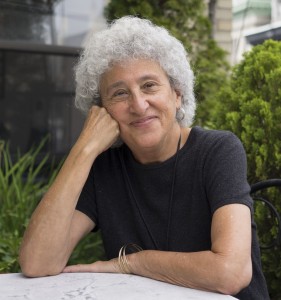
“or theyll put posters up saying pizza is the biggest source of tomato sauce in the American diet.”
Share this quote:
“Fat is mainstream, which is why everyone has become complacent. What used to be considered pudgy before isnt even worthy of a comment today.”
Share this quote:
“The general public believes that if a health claim is on the label the government backs that up, ... This sells food products, no question.”
Share this quote:
“theyre likely to win, because the courts are increasingly interpreting advertising speech as something thats covered by the First Amendment.”
Share this quote:
“Lets give [the city] tons of credit,”
Share this quote:
“Restaurants that have health-conscious consumers will pay attention to this.”
Share this quote:
“What this does is to turn food into medicine,”
Share this quote:
“If theyre replacing it with palm oil, I think its a wash.”
Share this quote:
“What this does is to turn food into medicine, ... Omega-3s occur naturally in food like fish, chicken and eggs, and plants to a lesser extent. Why do we need to get it from bread?”
Share this quote:
“Omega-3s occur naturally in food like fish, chicken and eggs, and plants to a lesser extent. Why do we need to get it from bread?”
Share this quote:
To speak only of food inspections: the United States currently imports 80% of its seafood, 32% of its fruits and nuts, 13% of its vegetables, and 10% of its meats. In 2007, these foods arrived in 25,000 shipments a day from about 100 countries. The FDA was able to inspect about 1% of these shipments, down from 8% in 1992. In contrast, the USDA is able to inspect 16% of the foods under its purview. By one assessment, the FDA has become so short-staffed that it would take the agency 1,900 years to inspect every foreign plant that exports food to the United States.
Share this quote:
Food safety oversight is largely, but not exclusively, divided between two agencies, the FDA and the USDA. The USDA mostly oversees meat and poultry; the FDA mostly handles everything else, including pet food and animal feed. Although this division of responsibility means that the FDA is responsible for 80% of the food supply, it only gets 20% of the federal budget for this purpose. In contrast, the USDA gets 80% of the budget for 20% of the foods. This uneven distribution is the result of a little history and a lot of politics.
Share this quote:
I follow my own advice: eat less, move more, eat lots of fruits, vegetables, and grains, and dont eat too much junk food. It leaves plenty of flexibility for eating an occasional junk food.
Share this quote:
How we grow food has enormous effects on the environment - climate change as well as pollution of air, water, and soil.
Share this quote: